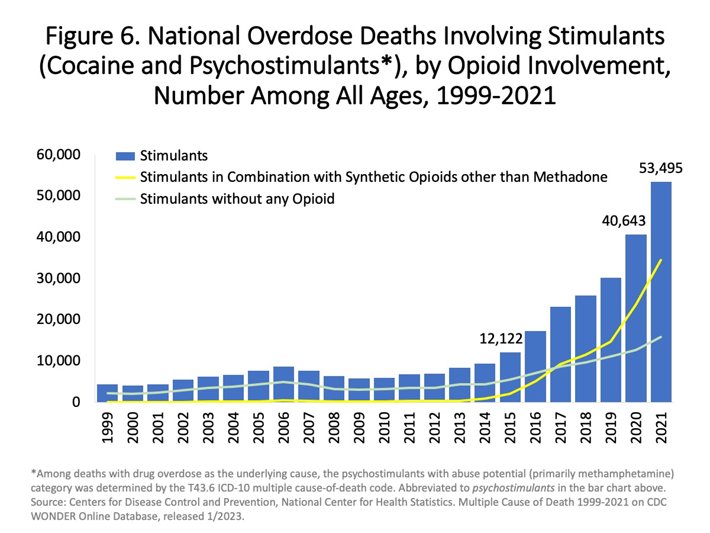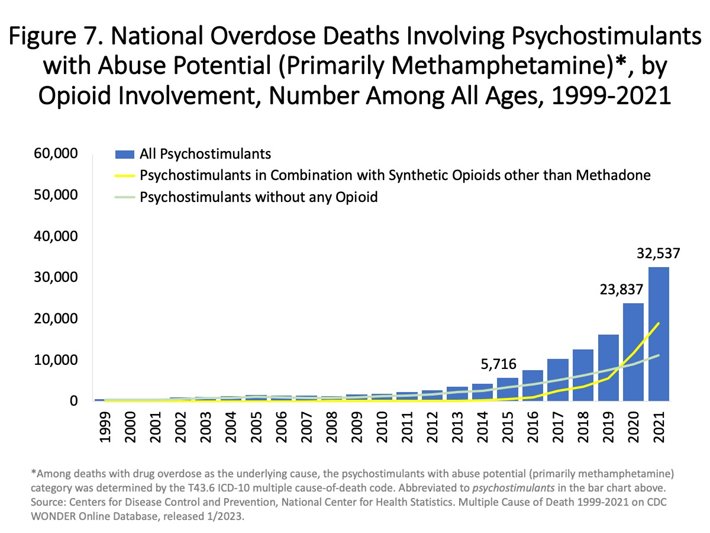Cocaine Deaths Surge as Autopsies Reveal Fentanyl in Most Cocaine Overdoses

Across the nation, what appear to be soaring numbers of meth and cocaine overdose fatalities are being traced back to fentanyl. Unless fast action is taken to help addicts enter and complete treatment, more people will die from preventable fentanyl overdoses.
A Boston Story
Drug addicts want to live, so they sometimes use mind-altering substances that they think will not kill them. While every drug can potentially cause death, some drugs claim fewer lives per year than others. Case in point, cocaine and meth have traditionally claimed a fraction of the lives that opioids do, even though hundreds of thousands of Americans experiment with these drugs yearly.
Sadly, all of that is changing, and few regions in the U.S. are being struck as hard by this change as Boston. In February 2023, national news headlines broke with a story that at least 11 Boston residents overdosed within 24 hours. All were addicted to drugs, and all thought they were using cocaine. According to toxicology reports, each Bostonian had been using cocaine, but their cocaine had been tainted with fentanyl.
Boston first responders are now urging residents to remain vigilant. “Fentanyl is a highly dangerous substance that even in small amounts can lead to a fatal overdose, so we urge all residents, health care providers, recovery workers, and outreach workers to remain vigilant for signs of opioid overdose, including among individuals who use cocaine,” said Boston Public Health Commissioner Dr. Bisola Ojikutu. During that statement, Ojikutu’s office put out a press release informing Boston residents that fentanyl is 30 to 50 times more potent than heroin and that at least 12% of cocaine samples examined in Boston tested positive for fentanyl in 2021.
Fentanyl, Cocaine, and Skyrocketing Drug Overdoses
The story out of Boston is recent and alarming, but it is not an isolated incident. Cities and localities across America are experiencing a surge in fentanyl-laced cocaine and meth overdoses. According to the National Institute on Drug Abuse, 53,495 Americans died in 2021 from cocaine and psychostimulant overdoses. However, closer inspection revealed almost two-thirds of those deaths also involved an opioid, which was the likely cause of the fatal overdose (though the overdose would have certainly been exacerbated by the cocaine or psychostimulant). It’s also worth noting cocaine and other psychostimulant deaths remained fairly stable from 1999 to 2014, with 5,000 to 10,000 Americans losing their lives to such drugs. But from 2015 to 2021, such overdoses soared by about 500%.

A similar situation as outlined above with cocaine has also occurred with meth. According to the National Institute on Drug Abuse, 32,537 people died from meth-related overdoses in 2021. But again, almost two-thirds of those deaths involved an opioid, the likely cause of the fatality. From 1999 to 2015, the rate of meth-related deaths was flat and mostly unchanging, with a few hundred deaths recorded annually. But from 2015 to 2021, the death rate spiked by about 600%, from about 5,000 deaths to over 32,000 deaths.

The Need for Quality Addiction Treatment is Clear
Fentanyl is one of the most potent, addictive, and life-threatening drugs ever created, and it is spreading across America’s drug abuse landscape like wildfire. This opioid is 50–100 times more potent than heroin and about 100 times more potent than morphine. Tens of thousands of opioid addicts and now thousands of non-opioid users are dying from exposure to this drug every year, totally eliminating the already-erroneous concept that there could be a form of drug use that is “safe.”
If someone sees what they believe to be a fentanyl overdose, even if it occurs in someone who typically only uses meth or cocaine, that person should be treated with naloxone immediately. Naloxone is a fast-acting medicine that can reverse the effects of a fentanyl overdose when given to an overdosing addict right away. Naloxone works by rapidly binding to opioid receptors in the addict’s body and quickly blocking the effects of opioid drugs. However, bystanders should remember that fentanyl is stronger than other opioid drugs like morphine or OxyContin and might require multiple doses of naloxone.
If you know someone who is addicted to drugs, you must help them find and enter qualified treatment as soon as possible. It does not matter what type of drug they use or how “safe” they think their drug of choice is. All forms of drug use have the potential to be fatal. If a family member or loved one is using drugs and cannot stop on their own, help them enter a residential drug rehab center today.
Sources Cited:
- USNews. “Boston Warns of Overdoses Linked to Fentanyl-Laced Cocaine.” U.S. News, 2023. usnews.com
- NIDA. “Drug Overdose Death Rates.” National Institute on Drug Abuse, 2023. nida.nih.gov
- NIDA. “What is fentanyl?” National Institute on Drug Abuse, 2021. nida.nih.gov


 ®
®